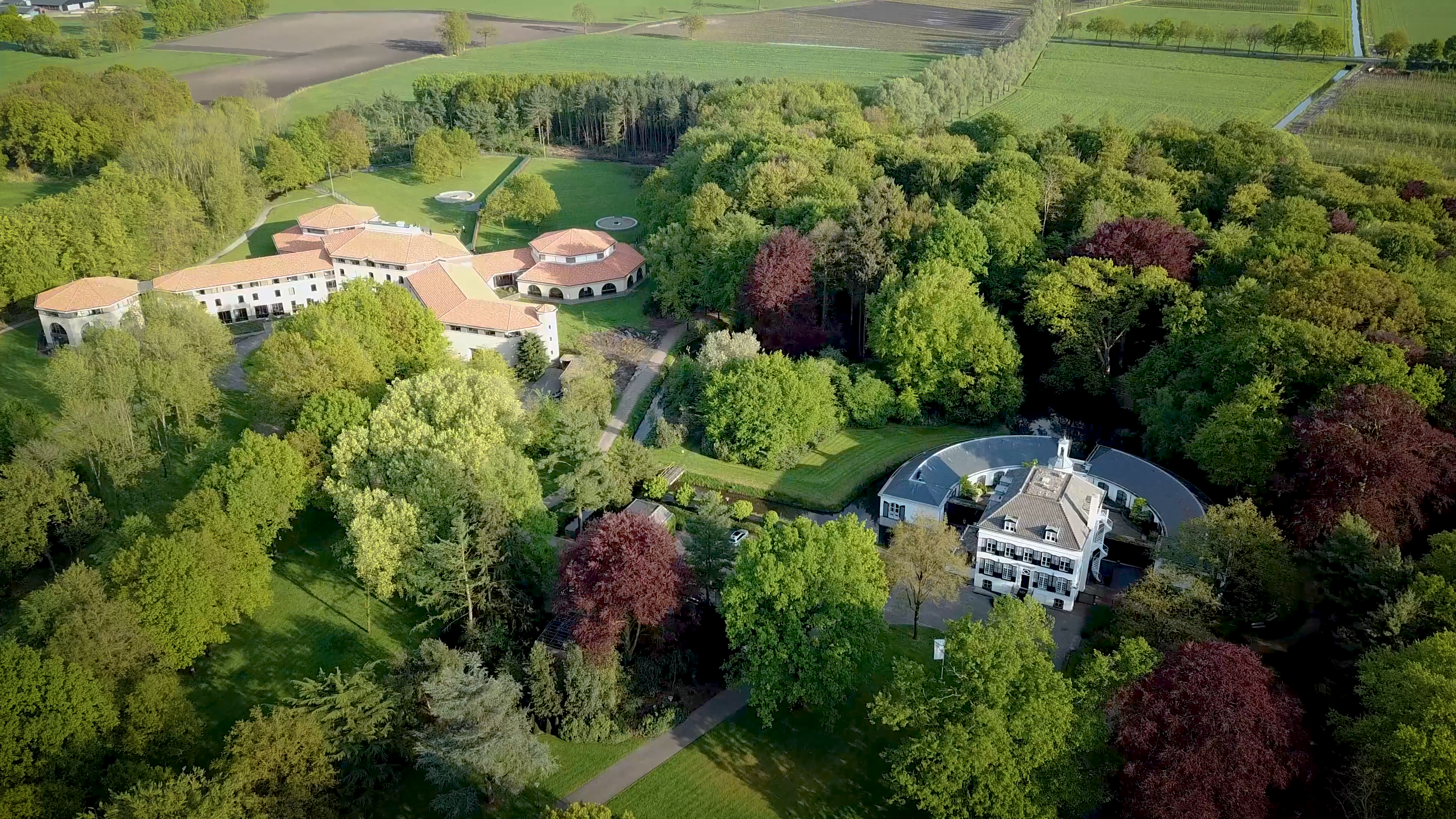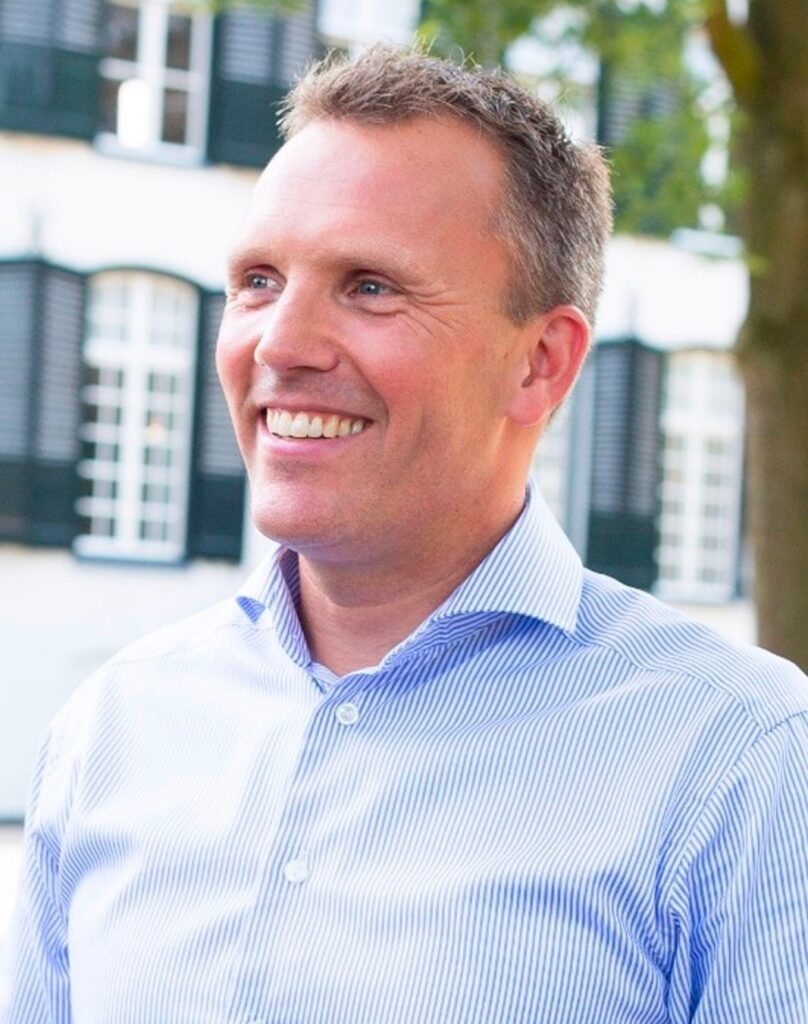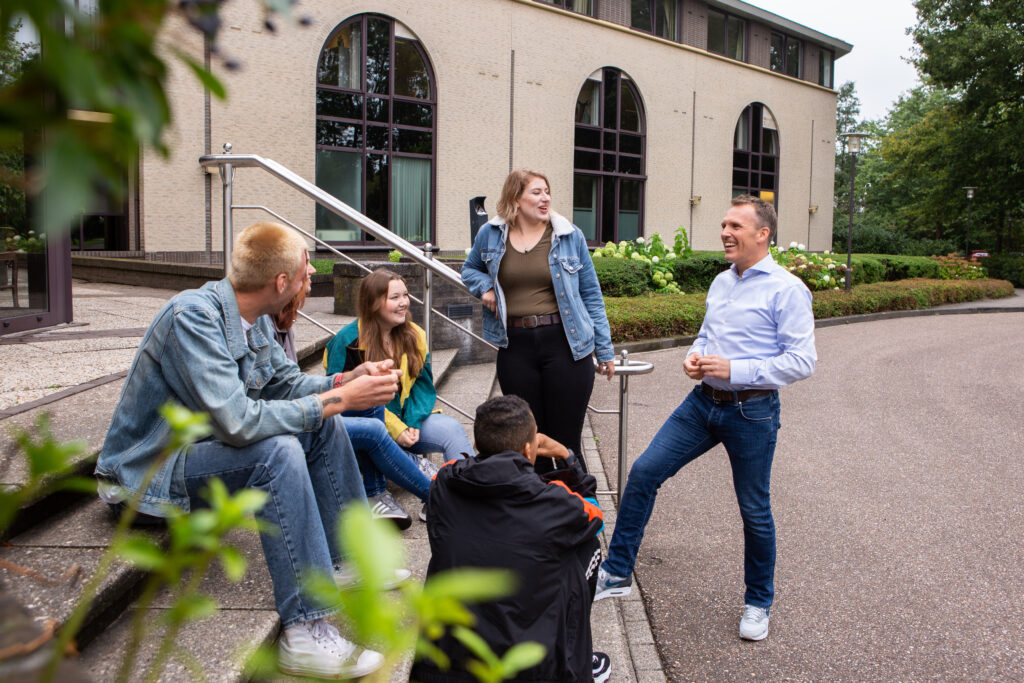 BBC News
BBC NewsBorrowing was £17.4bn last month, the second highest October figure since monthly records began in 1993.

Finito World meets the remarkable founder of the brilliant international mental health treatment centre in the Netherlands– and also discovers directly the positive impact it has had on young people
Kindness is an underrated trait in business. I blame Gordon Gecko. Since Wall Street came out in 1987, it posited the notion that to be successful you need to be ruthless. I never thought this needed to be true, and I especially don’t think it’s true after having Zoomed with Jan Willem Poot, the founder of Yes We Can Clinics and the international Yes We Can Youth Clinics in Holland.
Zoom journalism can be a tricky business; to gauge the person you’re talking with in 2D is sometimes impossible. The screen throws up too much distance. But with true kindness, the difficulty falls away: that’s because it dissolves all barriers. Generosity of spirit is essentially transparent, because what does it have to hide?
Jan Willem is like this: engaging, thoughtful, eager to tell you his story. He is the polar opposite of arrogant.
But I’ve also noticed that true empathy often has its origins in hard experiences. This is also the case with Jan Willem. He tells me: “To give you the story of the why of Yes We Can, I have to go back a little to my own story. My parents got divorced back when I was four or five. My Dad was happiest when he was around the world; and my mum raised me and I soon realised she was a little different to other mums: she was a heavy drinker – an alcoholic. She also took medication and never learned how to deal with her emotions without it.”

If that sounds hard, it was just the beginning. “My stepfather came to live with us, and he was also an alcoholic. From the age of 12-13, my home was an unsafe environment – a toxic place.”
Jan Willem began spending less time at home, and more time on the street, hanging out with people in similar situations. “We had an unspoken bond. I found marijuana and gambling to numb myself and became quickly addicted. I realised if I was stoned all day, or at a slot machine, I didn’t have to think or feel. By the age of 18, I was using cocaine and alcohol; by 19, I was using five grams of cocaine and a bottle of vodka just to feel alive.”
Luckily, one day a careworker found him in the street and picked him up and took him to an institution in the Hague. From 19 to 27, Jan Willem moved around and didn’t find the right mental healthcare during that time. “They were saying the right things theoretically but they couldn’t get into my heart,” he recalls.
At 27, Poot went to Scotland to Castle Craig Hospital in Blyth Bridge, Scotland. “It was a beautiful clinic in the hills of Scotland. They took my hand and said they wouldn’t let me go until I had changed and was in recovery. Somehow, I trusted them because these people were real.”
Jan Willem is now 17 years without drugs or alcohol: “I am having the most beautiful life I could have.” That’s because he has purpose – perhaps more purpose than I’ve ever encountered in anyone.
Back in the Netherlands, Jan Willem began apologising (“I had 200 people I had to say sorry too”) and also paying back people to whom he owed money. He finally made the last payments two years ago. 15 years ago he joined a sports company, which helped young people and Poot began to feel a burgeoning sense of vocation; he would give back, and help those people similar to the person he had been. “By seeing those kids and working with the kids – and seeing the beauty of that programme – I was fascinated and I could also see the group dynamics and how positive and beautiful it can be,” Jan Willem recalls.
Jan Willem had been there for one year when his boss came to him and asked for him to be his partner. The company grew over the next years, but during that time Poot began to realise that he craved more connection with the children, which formed a smaller part of his role than he felt he needed. These feelings were compounded by the national situation in the Netherlands. “At that moment there were 200,000 kids getting a form of youthcare. They weren’t really getting better – they were just in the system. 20,000 children had been in the system for multiple years. I knew I could start something small to see if I could change, or help. It was a dream I had.”
Poot sold the sports company and started Yes We Can Clinics in 2011; almost immediately, he began achieving real results with children. “After two years, the Dutch government, some insurance companies, the councils, they were coming to us and saying: “Please, grow and make this bigger because we have thousands of kids suffering because there isn’t any really effective care.” In 2011, there were 25 beds; in 2013, they moved to a place with 85 beds; and four years ago they moved to a clinic with 160 beds. That means that every year they now treat a thousand young people who stay for 10 weeks of residential care. It hardly needs saying that this is an astonishing achievement.
Yes We Can is now an international clinic, which makes a real difference to people’s lives all over the world, but I am keen to know more about what that impact looks like in real terms. With this in mind, I Zoom with a fellow of Yes We Can, who understandably asks to remain anonymous. For the purposes of this article, I shall call her Eve.
When I meet Eve, I know I am going to like her, and warm immediately to her candour, gentleness, and intelligence. What I don’t expect is that I will spend a portion of the next hour fighting back tears as I get to know her story.
Eve’s is – at least to some extent – a pandemic story. “In February 2020, I was diagnosed with anorexia nervosa,” she tells me. “I have struggled for my whole life with eating, and my behaviour around eating, but nothing was working. I was very, very stubborn and verbally abusive towards my family and not wanting to change. I became this selfish person completely compelled by my eating disorder.”

Eve entered something like a parallel universe where the good in life seemed to her a thing almost impossible to access; her only reality was her eating disorder. “I would shout that I wanted to die, that I didn’t want to be here, and all that stuff. I completely ruled the house; I was being just disgraceful and making my family cry.”
Curiously, COVID-19 gave her a trigger to seek recovery. “I was so afraid because nobody knew what it was like and I knew I was frail and what COVID could do to people. I didn’t want to die that way.”
This shows, as only a casual remark can, a shocking fact: for Eve, death was very much in the equation at this point. Fortunately, Eve’s mother had heard about Yes We Can Youth Clinics. She checked Eve in on 19th May 2020.
I take a moment to imagine how this might have been for Eve’s mother, who joins her daughter on the call. She has one of those kind faces which have also known suffering – but there is also something else written there, the perennial strength of a mother’s duty. It is the look of someone proud to be a mother, and proud to have suffered for love of her daughter, and who would do it again a thousand times. It is in itself, to use one of Poot’s favourite words, ‘beautiful’ to see.
There is always in the stories I have heard of addiction this almost unspoken toll on the nearest and dearest. And as Eve continues her story, my mind reverts back to Jan Willem Poot, who didn’t have a mother like this. Later, I also find myself contemplating the way in which the world gropes its way to good. It seems as if for all the pain that percolates in the world, we sometimes discover a secret remedy being administered. But this too is often an offshoot of suffering. The world has contained many people who hit rock bottom and didn’t survive. But others find that their nadir is the essential ingredient of the spiritual power they will appropriate in life. Yes We Can is an emblem of this.
And so it would prove for Eve. But she is at pains to point out that her life didn’t change rightaway. Slowly, as the weeks passed she began to reconnect with that other self which had seemed to have gone to sleep: the one capable of being happy and taking pleasure in the simple things the world has to offer. In fact, these things had been there, now and then, all along, even during the hardest parts of her struggle. “What I realised when I was actually in my active addiction, and in the clinic – and since I’ve left – is that nature is a massive thing for me – that I love the stars. I love going on walks.”
Even during the low point of her addiction, there were these little signs of another life – a life beyond her current predicament. “One of the things that I did during addiction was to look at the stars. That was something that I did love: before bed, I’d go outside and look up to the stars with my dad. It would be really magical, but then as soon as I went back inside, everything would be rubbish again. When I went to the clinic, it was one of the things that I would do to remember my parents and say goodnight to them. Dad would always say: “If you see the moon, and I see it, we’re looking at each other. To me, that puts everything into perspective and I say it’s part of my higher power which is something that we discover in the clinic.”
So what was it like going into the clinic? “I was just in my own self-pity, crying and constantly homesick,” Eve recalls. “It felt very, very scary. There were people who were in their later weeks and who were in recovery. I was afraid of judgements. But it was different to places I’d been in before. The clinic is there to confront you, but it also has a feeling that this is the right place to be and I knew instinctively it was going to help me.”
Eve’s biggest changes didn’t occur until around Week 6. “I was still in my old behaviour. Before it would be, “Just eat”. At Yes We Can no one made me eat. I was put on a meal plan, but the clinic understands that you’ve got to want it. I knew before I went that I wanted to change, but it was scary to take that step away from the safety of my addiction into something else. In a way, my anorexia was still a little high which would distract me from my relationships. But at the clinic, I began to understand why I was behaving in the way I did.”
One important moment was when Eve, who was used to being weighed blind, was weighed and showed her weight. “When I saw the results, I swore and cried. I was confused as I felt a hundred times better, but I had lost weight. Then I went to my therapist and cried and then said: “Right, I’m going to do it.” My first meal was unbelievable. I thought: “Wow, this is incredible. How have I been missing this?”
Eve continues to stay in touch with other fellows from Yes We Can, and is now set for a future which is immeasurably brighter than what she faced a year and a half ago. But what does she think would have happened had she not gone to the clinic? “That’s easy,” she says. “I would have died.”
We have heard a lot these past years about mental health, and I have sometimes begun to wonder if it’s an unhelpful buzzword. One reason for this is that our current conversation seems to skim over the life and death aspect of real struggle; it can elevate difficulty to the realm of real suffering which in turn may make us turn a blind eye to those who are really in danger.
Jan Willem simplifies the whole thing for me: “We follow the same mission for all the kids who come here, and say to us: “I’m dying.” The end result is so beautiful. You can change behaviour. You can change thinking. Young people can start to believe in life again. That gets you motivated. This is the thing I want to do for the rest of my life.”
And you can see that he will – that he will never forget the motivation which his own redemptive story has given him. He wants that redemption for other people – and perhaps with a passion so heartfelt and true that one half-suspects him of saintliness – even over Zoom.
Saint of not, it strikes me that the scale of Jan Willem’s achievement is to make his story not just his own – it is also Eve’s story and thousands of others we won’t be able to hear about in this article. But take a moment now to consider all the others, and try to imagine all the good that a person can do if they have the determination and the vision. If the pandemic teaches us nothing else, let it teach us this. Christopher Jackson is News Director at Finit